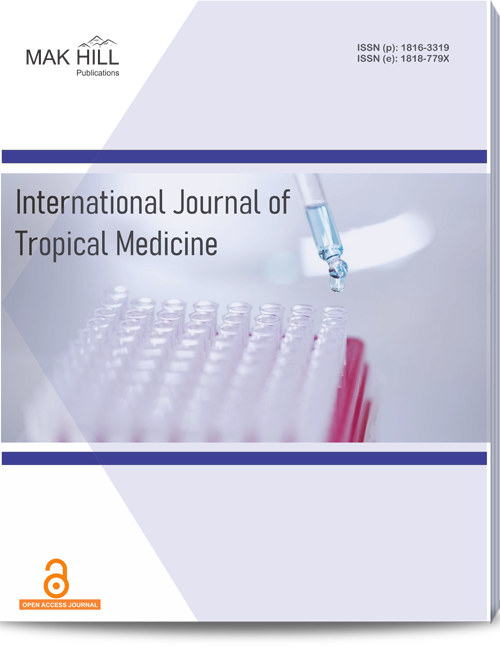
International Journal of Tropical Medicine
ISSN: Online 1818-779XISSN: Print 1816-3319
Abstract
Endoscopic Retrograde Cholangiopancreatography (ERCP) is one of the most technically demanding interventional procedures used by the gastroenterologists and interventional endoscopists both for the diagnosis and treatment of hepatopancreatic biliary diseases. The aim of this study was to assess the clinical profile of patients undergoing ERCP and its associated complications. The study retrospectively reviewed 373 patients data of ERCP performed by the experienced gastroenterologists at a single tertiary care center between January, 2019 to December, 2021. The data was entered into Microsoft excel and statistical analysis was done with SPSS 25 version in terms of clinical profile of patients undergoing ERCP and its associated complications. Out of 373 participants, 41.82% (156) were males while 58.18% (217) were females; mean age was 49.6 years. Majority of the patients i.e., 81.23% complained of pain abdomen followed by jaundice (41%). The most common indication for ERCP procedure was choledocholithiasis (73.72%). The most common complications were pancreatitis 35(9.38%), cholangitis 12(3.21%), perforation 3(0.8%) and bleeding 2(0.53%). Mortality occurred in 0.8% of the patients. For the treatment of the diseases of the biliary tract, ERCP undoubtedly is a technically advance procedure. However, it is associated with risk of severe pancreatitis, perforation, bleeding and even death.
How to cite this article:
Sanjib Kumar Kar, Rakesh Kumar Barik, Ananya Das and Somya Ranjan Nayak. Clinical Profile of Patients Undergoing ERCP in a Tertiary Care Centre in Eastern India.
DOI: https://doi.org/10.36478/10.59218/makijtm.2024.1.88.92
URL: https://www.makhillpublications.co/view-article/1816-3319/10.59218/makijtm.2024.1.88.92